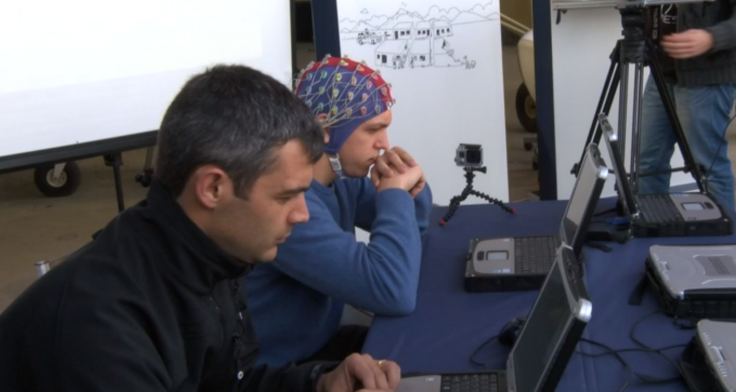Project Brainflight: Brain-controlled drone demonstrated publicly for first time

A drone flown using only the power of the brain has been demonstrated in Portugal, leading to claims that one day the system could be used to control larger jets including cargo commercial planes.
Project Brainflight, which was led by drone makers Tekever from Portugal, uses high-performance electroencephalogram (EEG) systems to measure specific parts of the brain which work with "specially conceived algorithms" to convert brain signals into drone commands.
The "drone operator" wearing a cap that measures brain activity, is able to control the drone's path using "nothing but simple thoughts" according to Tekever.
The process of training your brain to use this system takes a number of months after which the "pilots" are able to control a circle on a computer screen to move up or down using only their thoughts, which in turn turns the drone left or right.
"Essentially, the electricity flowing through the pilot's brain acts as an input to the drone's control system, in order to perform, on the air, a mission with objectives previously defined by the research team," a Tekever statement says.
Benefit entire pilot community
This is the first time the technology has been shown off in public and the company believes that in the short term it could be used to allow people with disabilities to control aircraft.
However the company has grand ambitions about where its system could be used in the future, predicting that it could one day replace pilots in larger jets including cargo planes and even commercial aircraft:
"If [our system] is adopted in the future as a method of control for aircraft (both manned and remotely piloted) then the project will potentially benefit the entire pilot community - from ultralight and general aviation to commercial aviation."
Independent aviation consultant John Strickland has his doubts about the wider uses for this system however, telling the BBC:
"This to me is certainly at the moment a bridge too far. You could get someone radically-minded who might say it, but I'd be surprised if anyone would do it."
© Copyright IBTimes 2025. All rights reserved.






















